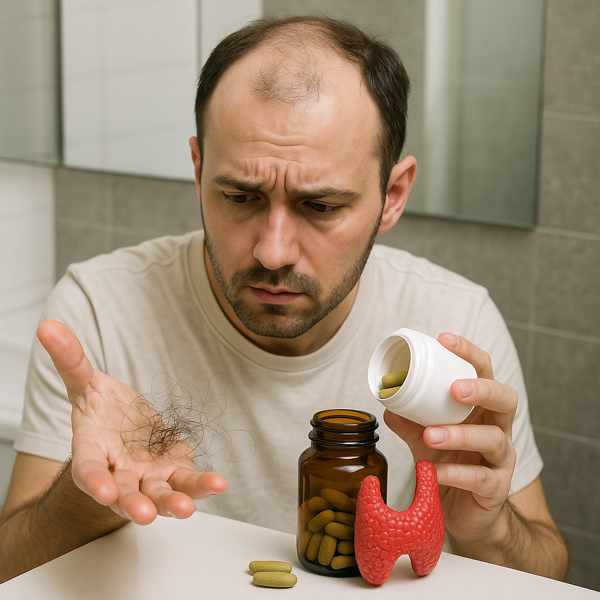
Losing weight is often a positive step toward better health, but it can sometimes come with unwelcome side effects — like hair loss.
Understanding why this happens and how to protect your hair can help you reach your goals without compromising your confidence.
The Link Between Dieting and Hair Shedding
Hair loss during weight loss is usually a result of physical stress or nutritional deficiencies.
Common causes include:
- Lack of protein, iron, or vitamins
- Extreme calorie restriction
- Hormonal imbalances
- Rapid weight loss
What Type of Hair Loss Is It?
Most hair loss related to weight loss is called telogen effluvium.
Key facts:
- Usually occurs 2–3 months after weight loss begins
- No bald patches, just thinning
- Hair usually grows back with time
What Your Hair Needs to Thrive
If you're trying to lose weight, be sure not to miss these nutrients:
- Protein
- Carries oxygen to hair follicles
- Biotin and other B vitamins
- Supports hair tissue repair and growth
- Linked to healthy follicles and hormonal balance
Skipping meals or using crash diets can easily lead to deficiencies website that trigger hair loss.
Yes — With the Right Strategy
It’s possible to do both by following a balanced and mindful approach.
Tips include:
- Lose weight gradually
- Focus on whole, balanced meals
- Consider a multivitamin
- Both affect hormones and hair health
- Hair needs water, too
What to Do If You’re Already Losing Hair
If you notice excessive shedding:
- It’s likely temporary
- Check for deficiencies or thyroid issues
- Replenish what’s missing
- Avoid tight hairstyles and harsh products
- Hair regrowth takes a few months
Should You Talk to a Doctor?
A doctor or dermatologist can help identify underlying issues like:
- Thyroid dysfunction
- Autoimmune conditions
- Need professional correction
Conclusion
By understanding what’s happening inside your body, you can take steps to protect your health — and your hair.
Prioritize nourishment, patience, and consistency, and your body will thank you — from head to toe.